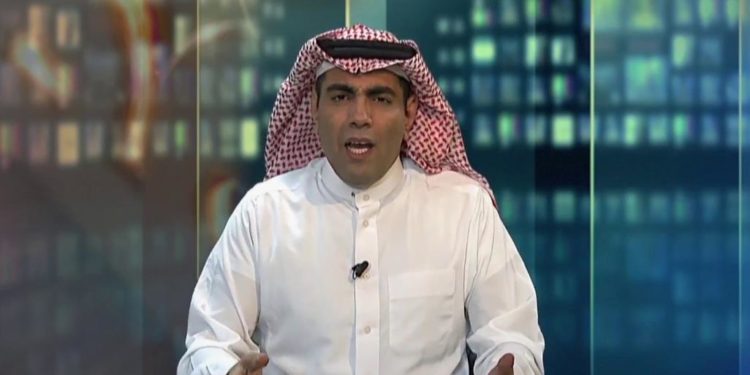
Saudi dissident Ghanem Al-Masasir Al-Dossari announced that he refused an offer from the Washington Post to write there, fearing that he might face the same fate of the journalist, Jamal Khashoggi, who was killed in his country’s consulate in Istanbul in early October 2018.
The satirical writer – who lives under the protection of British police in London – revealed that he had received death threats, and that he recently received a message through his account on a social networking site saying “you must be beheaded.”
Al-Dosari states that he is trying to take all the necessary security precautions in his daily life, noting that he always turns behind him while he goes home or leaves the house, to make sure that no one is tracking him.
He adds that he received an offer ten days ago from The Washington Post to write a weekly article, but he has yet to respond, as he is afraid of facing the fate faced by Khashoggi.
Al-Dosari notes that the Washington Post’s offer came at a time when allegations surfaced that Crown Prince Mohammed bin Salman had hacked the newspaper owner Jeff Bezos’ phone, which now makes his work in it more vulnerable.
In response to a question about the reactions and impact of his work in the Washington Post, Al-Dosari says that his work will mean waiting for death at every moment.
The Saudi opponent explains this that he will have reached Western public opinion more, which makes him a greater threat to the Saudi administration from the latter’s point of view.
He notes that attempts to penetrate his phone and accounts on the Internet are continuing, and that he always receives emails containing requests to change his passwords.
Al-Dosari has lived in Britain since 2003, and has a YouTube channel in which he publishes clips criticizing the royal family in Saudi Arabia. He was previously attacked in London a month before Khashoggi was killed, and the British government assigned him a special guard from the police.
It is noteworthy that on October 2, 2018, Khashoggi, who was writing for the Washington Post, was killed inside his country’s consulate in Istanbul.
In the context of the case, the Saudi authorities issued death sentences against five of the accused, and sentenced to 24 years in prison for three other accused, while those close to Muhammad bin Salman were released.
In June 2019, the United Nations High Commissioner for Human Rights published a nearly 100-page report, in which Saudi Arabia held responsibility for the deliberate killing of Khashoggi.
The UN report also indicated that there was documented evidence in order to investigate senior officials, including Muhammad bin Salman.